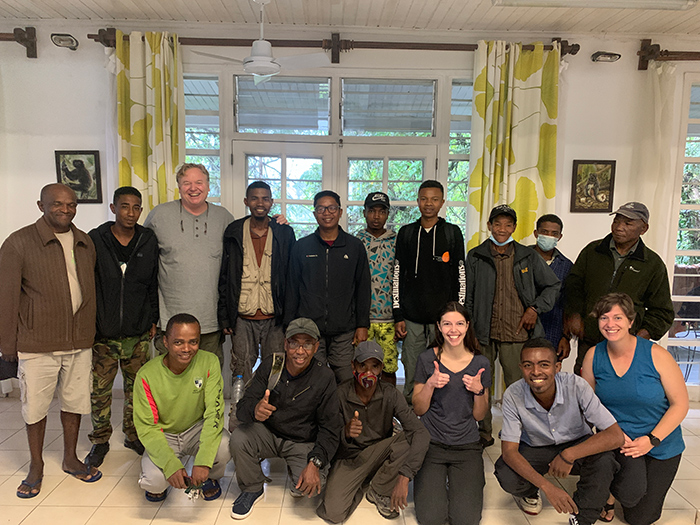
Hi, I’m Conservation Genomics Scientist, Rachel Johnston. I’m here in Madagascar to perform animal health assessments and collect samples for genetics research as part of Zoo New England’s One Health initiative. I’m working alongside veterinarians Chris Bonar (Zoo New England) and Jeffrey Wyatt (University of Rochester), as well as 10 Malagasy biologists from Center Val Bio.
This past year, Zoo New England grew its roster of innovative international partnerships with a new effort in Madagascar, led by the non-governmental organization, Health In Harmony, to improve the conservation status of several species of lemurs and other rare wildlife in a special reserve in southeast Madagascar, while also investing in the health care, food security and economic opportunities designed by Malagasy community members who live around the forest.
Health in Harmony promotes more sustainable livelihoods based on the premise of “radical listening,” in which communities are asked what they see as solutions to reduce reliance on forest degradation. Health in Harmony then works with the communities to implement those solutions. As these improvements are made, teams of skilled technicians, funded by Zoo New England, conduct rapid biodiversity assessments of Manombo Rainforest. Field missions, like the one I’m on today, document species richness and population abundance of mammals, amphibians, reptiles, birds and plants.
Field Mission: Day One

Yesterday we completed half the drive from Madagascar’s capital, Antananarivo, to the Manombo Special Reserve, the jungle oasis we are journeying to in order to perform biodiversity assessments and animal health surveys and sampling. We stayed the night at Center Val Bio (CVB), a beautiful research center located at Ranamofana National Park.
This morning we met with our 10 CVB biologist team members, who will be carrying out biodiversity assessments within the Manombo Special Reserve. It quickly became clear that the CVB biologists are some of the best and brightest biologists I’ve met, and everyone is enthusiastic about the field expedition. We’re excited to get started!
